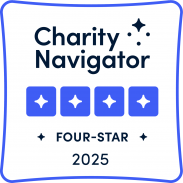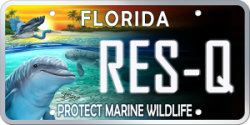Media Room: Press Release
FOR IMMEDIATE RELEASE
Media Contact: Mary Stella, Director of Media & Marketing
305-289-1121, ext. 254
Email: media@dolphins.org
Oxford University Press Taps Dolphin Research Center For New Book
Grassy Key… When the editors of the Oxford Handbook of Comparative Evolutionary Psychology were planning their publication, they needed to cover different topics and groups of animals, with each chapter written by an expert on that specific area. For the chapter on cetaceans (dolphins, whales and porpoises), they invited Dolphin Research Center to contribute and Research Director Dr. Kelly Jaakkola took on the challenge. The chapter, entitled “Cetacean Cognitive Specializations” introduces a comprehensive picture of dolphin cognition to the science world in a way that has never been assembled before.
In writing the chapter Dr. Jaakkola looked at all of the studies that addressed how dolphins think and learn, not only those conducted by Dolphin Research Center, but also by other scientists throughout the world. “It was important to look at the big picture and see what is already known and what still needs to be studied,” she says. She was then able to organize the information into the key areas of: concepts and memory; physical cognition (e.g. understanding of objects, number, and space); social cognition (e.g., cooperation, imitation, understanding of other minds); and symbolic cognition (e.g., understanding pictures symbols [like words], and syntax [word-order]. “Taking all the research together, we demonstrated that dolphins possess a level of complex thinking largely on par with the great apes. We also explored possible evolutionary reasons for the expansion of the dolphin brain, and suggested directions for future research.”
Even with the publication of the Oxford University handbook, our understanding of the full scope of dolphin cognition is still not complete. “There are a lot of things we don't yet know,” she adds. “Our hope is that this "big picture" framework can guide us and other researchers as we continue to study and learn about dolphin intelligence.”
In recent years, Dolphin Research Center has conducted and published studies focused on dolphin cognition including: dolphins’ ability to mathematically compare quantities (published in the Journal of Comparative Psychology), Object Permanence which explored what dolphins understand about hidden objects (published in the journal Animal Cognition) and Blindfolded Imitation, which showcased dolphins' amazing imitation abilities in a way that's never before been seen in nonhuman animals (published in the International Journal of Comparative Psychology). These research endeavors as well as others currently underway at the center, led to the invitation from the handbook’s editors.
“We were delighted when Dr. Jaakkola was approached about writing this chapter and are proud that Dolphin Research Center’s name is associated with such a prestigious publication,” says DRC’s Co-Founder and Chief Operating Officer Armando “Mandy” Rodriguez. “We are committed to continuing our dolphin cognition research. Every new finding invites a connection to dolphins, which can inspire more care for the species and the environment in which they live.”
Founded in 1984, Dolphin Research Center is home to a family of Atlantic bottlenose dolphins and California sea lions. Located at 58901 (mile marker 59) Overseas Highway, Grassy Key, Florida, the center is open daily for the public to see narrated behavior sessions, including ongoing research, and educational presentations, and to participate in interactive programs with the dolphins. The nonprofit organization is funded by admission and program fees as well as by private donors and members. In addition to being one of the most highly respected education and research facilities in the world, DRC is the Licensed Manatee Rescue Team for the Florida Keys and is an accredited member of the Alliance of Marine Mammal Parks and Aquariums.
###











